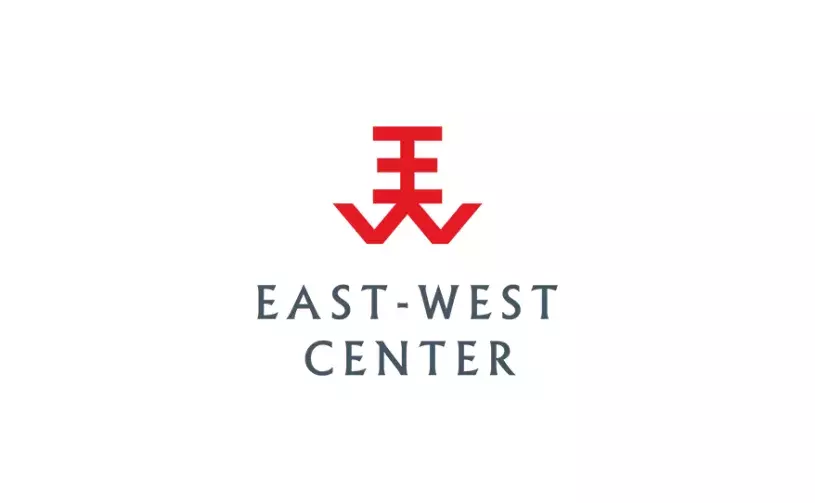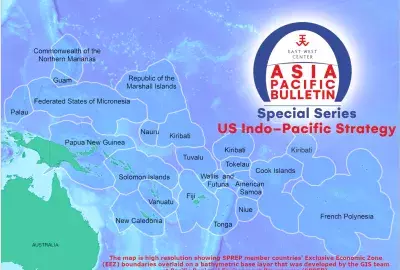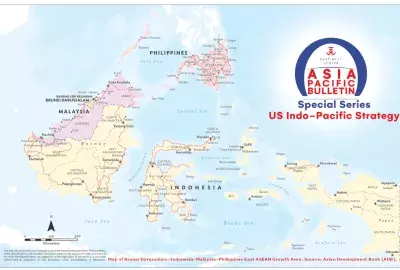
Ashley Westerman, Freelance Journalist and Producer, explains that a turnover in government, along with changing demographics, are what analysts believe could edge New Caledonia towards voting for independence in the December 12 referendum.
On December 12, a small cluster of islands in the South Pacific will face a big decision: Should they remain part of France? Or will they vote to become an independent country?
The upcoming vote is not the first time New Caledonia, an archipelago in Melanesia some 750 miles off the eastern coast of Australia, has been faced with this crucial question. In both 2018 and 2020, the French territory voted NO to independence from Paris. But New Caledonia now has a third and final shot, afforded to them through a special agreement known as the Nouméa Accord.
This time could be different, say analysts, as politics and demographics may finally be right for change.
Is there a Path to Independence?
The French annexed New Caledonia in 1853, and through the migration of Europeans and other settlers, the indigenous Kanaks became the minority in their own homeland. Over a century of discrimination, exploitation and exclusion of the Kanaks by the French caused a strong independence movement to form, with periods of serious violence, particularly between 1976 and 1988.
Following that period of civil unrest in the 1980s, France and New Caledonia signed two agreements–one in 1988 and 1998–in an attempt to bring about peace. In the second agreement, known as the Nouméa Accord, named for the territory’s capital, France promised to grant increased political power to the Kanaks and New Caledonia over the next twenty years.
The accord would also give the territory three chances to vote for independence. The first referendum took place in 2018, and only 43.6% of voters favored leaving France. The vote was primarily driven by ethnicity, with some 91% of Kanak voters pulling the “YES” lever for independence.
The second referendum, which took place in 2020, saw nearly 47% of voters opting for independence. As Alexandre Dayant of the Sydney-based Lowy Institute told me earlier this year, these results demonstrate that the pro-independence movement was building, even outside the Kanak population.
Meanwhile, every New Caledonian government since 1999 has been run by parties loyal to France. However, in February 2020, a pro-independence coalition, known as FLNKS (Kanak and Socialist National Liberation Front), emerged with a majority after snap elections.
That majority would go on to select Louis Mapou as president. Mapou is a Kanak and the first pro-independence president of New Caledonia since the Nouméa Accord was signed.
Why Now?
This historic turnover in government, along with changing demographics, are what analysts believe could edge New Caledonia towards voting for independence in the December 12 referendum.
Results from the previous two referendums suggest that ethnicity is a strong determinant of voting preference; indigenous Kanaks more often support independence, while voters of European descent tend to oppose independence. But New Caledonia’s demographics are changing.
Modeling done by the Lowy Institute ahead of the 2020 referendum predicts that an increase in both overall voters as well as participation rates, specifically among native-born voters and other voters that meet the criteria to take part in the referendum, might be enough to tip the scales in favor of independence.
In consideration of shifting demographics, Dayant posits, the pro-independence camp would want “to try and ensure as many pro-independence votes as possible from a growing native-born population.”
A “YES” win has yet to be defined by the French government, which supports New Caledonia with some €1.5 billion, or 18% of GDP. It may or may not mean a “clean break,” and it may or may not mean a large number of people will have to emigrate, according to the Lowy Institute.
Meanwhile, a “NO” win would mean the end of the Nouméa Accord, but one thing is plain, writes Dayant:
“…that keeping the status quo will be impossible. French or independent on 13 December, New Caledonia will have to imagine a new institutional architecture and tackle big problems: economic, social, and increasingly, issues related to the climate.”
What is at Stake?
Independence for New Caledonia, with its population of nearly 272,000, affects more than just Nouméa and Paris–it could affect the balance of power through the Pacific as a whole.
"France would not be the same without New Caledonia," President Emmanuel Macron said in 2018, speaking in the territory. He’d go on to press for an “Indo-Pacific axis” and warned about a “new hegemony” in the region; as a reference to China, which has become more assertive and influential in the Pacific.
There is great concern by Western powers that if New Caledonia becomes independent that it may fall under China's influence like so many in the Pacific already have, like the Solomon Islands and Kiribati. The reality, though, is that China is already very present in the territory as it, not France, is New Caledonia's largest trading partner. In 2019, New Caledonia exported some $1.72 billion to China, which is also the destination for most of New Caledonia's nickel.
New Caledonia is the fourth-largest nickel producer, after Indonesia, the Philippines, and Russia. Nickel, a primary component in stainless steel, is in exceptionally high demand right now as an input in the manufacture of lithium-ion batteries. Foreign companies dominate the territory's nickel industry. Thus, a vote for independence would mean New Caledonians would get to control more of their own resources.
And while nothing is guaranteed when it comes to which way New Caledonia may choose to align itself if the territory gains independence from France, it will likely do business with whom it must to keep its economy afloat without Paris.
Denise Fisher, a visiting fellow at the Australian National University Center for European Studies and a former Australian diplomat who served in Nouméa, told NPR that France’s assets in the Pacific give “it a place at the table of dealing with China” and enhances Paris’ relationship with Washington. She points out that France is in “a difficult role” when it comes to honoring the Accord, whilst also wanting to continue to pursue its ambitions in the Pacific.
Meanwhile, any referendum in New Caledonia will likely be closely watched by other places in the world with strong pro-independence movements. Such as neighboring French Polynesia and any other areas on the U.N.’s decolonization list.
While much is at stake, the referendum may not even be held on December 12–if the pro-independence party gets its way.
The pro-independence FLNKS group has called for the vote to be postponed in light of the COVID-19 pandemic, saying the government should prioritize its fight against the virus. New Caledonia has registered more than 11,800 cases of COVID-19 and over 270 deaths, according to Johns Hopkins University. Still, France’s minister of overseas territories Sebastien Lecornu has said the vote must proceed.
On Nov. 12, the New Caledonia’s High Commissioner confirmed that the vote would proceed as planned. The FLNKS coalition spokesman followed up with his own confirmation that they would not participate in the vote.
Ashley Westerman, Freelance Journalist and Producer, explains that a turnover in government, along with changing demographics, are what analysts believe could edge New Caledonia towards voting for independence in the December 12 referendum.
On December 12, a small cluster of islands in the South Pacific will face a big decision: Should they remain part of France? Or will they vote to become an independent country?
The upcoming vote is not the first time New Caledonia, an archipelago in Melanesia some 750 miles off the eastern coast of Australia, has been faced with this crucial question. In both 2018 and 2020, the French territory voted NO to independence from Paris. But New Caledonia now has a third and final shot, afforded to them through a special agreement known as the Nouméa Accord.
This time could be different, say analysts, as politics and demographics may finally be right for change.
Is there a Path to Independence?
The French annexed New Caledonia in 1853, and through the migration of Europeans and other settlers, the indigenous Kanaks became the minority in their own homeland. Over a century of discrimination, exploitation and exclusion of the Kanaks by the French caused a strong independence movement to form, with periods of serious violence, particularly between 1976 and 1988.
Following that period of civil unrest in the 1980s, France and New Caledonia signed two agreements–one in 1988 and 1998–in an attempt to bring about peace. In the second agreement, known as the Nouméa Accord, named for the territory’s capital, France promised to grant increased political power to the Kanaks and New Caledonia over the next twenty years.
The accord would also give the territory three chances to vote for independence. The first referendum took place in 2018, and only 43.6% of voters favored leaving France. The vote was primarily driven by ethnicity, with some 91% of Kanak voters pulling the “YES” lever for independence.
The second referendum, which took place in 2020, saw nearly 47% of voters opting for independence. As Alexandre Dayant of the Sydney-based Lowy Institute told me earlier this year, these results demonstrate that the pro-independence movement was building, even outside the Kanak population.
Meanwhile, every New Caledonian government since 1999 has been run by parties loyal to France. However, in February 2020, a pro-independence coalition, known as FLNKS (Kanak and Socialist National Liberation Front), emerged with a majority after snap elections.
That majority would go on to select Louis Mapou as president. Mapou is a Kanak and the first pro-independence president of New Caledonia since the Nouméa Accord was signed.
Why Now?
This historic turnover in government, along with changing demographics, are what analysts believe could edge New Caledonia towards voting for independence in the December 12 referendum.
Results from the previous two referendums suggest that ethnicity is a strong determinant of voting preference; indigenous Kanaks more often support independence, while voters of European descent tend to oppose independence. But New Caledonia’s demographics are changing.
Modeling done by the Lowy Institute ahead of the 2020 referendum predicts that an increase in both overall voters as well as participation rates, specifically among native-born voters and other voters that meet the criteria to take part in the referendum, might be enough to tip the scales in favor of independence.
In consideration of shifting demographics, Dayant posits, the pro-independence camp would want “to try and ensure as many pro-independence votes as possible from a growing native-born population.”
A “YES” win has yet to be defined by the French government, which supports New Caledonia with some €1.5 billion, or 18% of GDP. It may or may not mean a “clean break,” and it may or may not mean a large number of people will have to emigrate, according to the Lowy Institute.
Meanwhile, a “NO” win would mean the end of the Nouméa Accord, but one thing is plain, writes Dayant:
“…that keeping the status quo will be impossible. French or independent on 13 December, New Caledonia will have to imagine a new institutional architecture and tackle big problems: economic, social, and increasingly, issues related to the climate.”
What is at Stake?
Independence for New Caledonia, with its population of nearly 272,000, affects more than just Nouméa and Paris–it could affect the balance of power through the Pacific as a whole.
"France would not be the same without New Caledonia," President Emmanuel Macron said in 2018, speaking in the territory. He’d go on to press for an “Indo-Pacific axis” and warned about a “new hegemony” in the region; as a reference to China, which has become more assertive and influential in the Pacific.
There is great concern by Western powers that if New Caledonia becomes independent that it may fall under China's influence like so many in the Pacific already have, like the Solomon Islands and Kiribati. The reality, though, is that China is already very present in the territory as it, not France, is New Caledonia's largest trading partner. In 2019, New Caledonia exported some $1.72 billion to China, which is also the destination for most of New Caledonia's nickel.
New Caledonia is the fourth-largest nickel producer, after Indonesia, the Philippines, and Russia. Nickel, a primary component in stainless steel, is in exceptionally high demand right now as an input in the manufacture of lithium-ion batteries. Foreign companies dominate the territory's nickel industry. Thus, a vote for independence would mean New Caledonians would get to control more of their own resources.
And while nothing is guaranteed when it comes to which way New Caledonia may choose to align itself if the territory gains independence from France, it will likely do business with whom it must to keep its economy afloat without Paris.
Denise Fisher, a visiting fellow at the Australian National University Center for European Studies and a former Australian diplomat who served in Nouméa, told NPR that France’s assets in the Pacific give “it a place at the table of dealing with China” and enhances Paris’ relationship with Washington. She points out that France is in “a difficult role” when it comes to honoring the Accord, whilst also wanting to continue to pursue its ambitions in the Pacific.
Meanwhile, any referendum in New Caledonia will likely be closely watched by other places in the world with strong pro-independence movements. Such as neighboring French Polynesia and any other areas on the U.N.’s decolonization list.
While much is at stake, the referendum may not even be held on December 12–if the pro-independence party gets its way.
The pro-independence FLNKS group has called for the vote to be postponed in light of the COVID-19 pandemic, saying the government should prioritize its fight against the virus. New Caledonia has registered more than 11,800 cases of COVID-19 and over 270 deaths, according to Johns Hopkins University. Still, France’s minister of overseas territories Sebastien Lecornu has said the vote must proceed.
On Nov. 12, the New Caledonia’s High Commissioner confirmed that the vote would proceed as planned. The FLNKS coalition spokesman followed up with his own confirmation that they would not participate in the vote.







